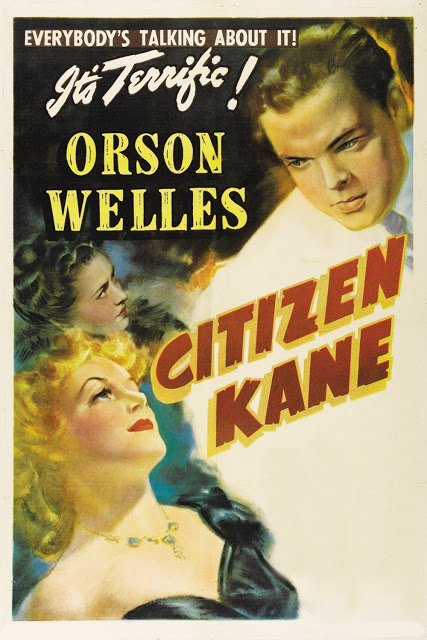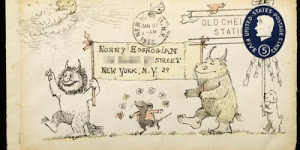It's February and that mean's Oscar Season is upon us. Often culturally enriching and always entertaining, award-winning movies have been voted upon by the academy since the 1920s! Don't miss these Oscar Best Picture Films.
It's February and that mean's Oscar Season is upon us. Often culturally enriching and always entertaining, award-winning movies have been voted upon by the academy since the 1920s! Don't miss these Oscar Best Picture Films. It's February and that mean's Oscar Season is upon us. Often culturally enriching and always entertaining, award-winning movies have been voted upon by the academy since the 1920s! Don't miss these Oscar Best Picture Films.
Citizen Kane
 is almost universally considered to be the greatest movie of all time. At least, it certainly made number one on the American Film Institute's Top 100 American Movies List. Now, maybe you are one of those people who, despite its exalted place in film history, are skeptical. I was. In fact, I was under the impression it was about a heartless, power-hungry newspaper man and war monger who ends up dying alone. Not the type of story to draw me in- And, well, it is about that, sort of, but not at all in the way you'd think.
is almost universally considered to be the greatest movie of all time. At least, it certainly made number one on the American Film Institute's Top 100 American Movies List. Now, maybe you are one of those people who, despite its exalted place in film history, are skeptical. I was. In fact, I was under the impression it was about a heartless, power-hungry newspaper man and war monger who ends up dying alone. Not the type of story to draw me in- And, well, it is about that, sort of, but not at all in the way you'd think.
The movie starts with the famous line " Rosebud," which turns out to be the last word of Charles Foster Kane. What follows is a reporter's investigation of the man's life to find who he was as a person, and the meaning of his mysterious last words. As the reporter visits those still living who knew Kane best, his life is revealed in fragements ultimately showing an idealism and need corrupted over time. It is, essentially, a the same story told from multiple perspectives, each leaving out and adding in things, to create differing impressions of a man whom some once thought important.
Critics pegged the movie as an unrelenting parody of the newspaper tycoon, William Randolph Hearst. Certainly, Hearst, a contemporary and personal aquaintance of the filmmakers, saw it as such, lambasting it in his many papers, and other news outlets. In later years though, some thought the story followed another's life more closely- that of the director and star Orson Welles', giving the movie an eerie sense of self-prophecy. Citizen Kane's editor, Robert Wise, explained, "I saw the film again...when they had the fiftieth anniversary, and I suddenly thought to myself, well, Welles was doing an autobiographical film and didn't realize it, because it's rather much the same, you know. You start here, and you have a big rise and tremendous prominence and fame and success and whatnot, and then tail off and tail off and tail off." Others have been kinder to Welles. They have commented that, though there were similarities between the fictional Kane's and reali-life Welles' lives, Welles was nothing like the movie protagonist, because Welles never railed against his life tragedies, and furthermore Welles had true artistic ablities which Kane lacked. Hearst was not the only person who would feel insulted by the film though. Both today and during the film's initial release, Orson Welles was trumpeted as a sort of one-man band- the man who wrote, directed, and starred in the greatest film of all time. However, the script is actually credited to two men, Orson Welles and Herman J. Mankiewicz. The latter often felt his work on the film was not acknowledged and, in fact, reports that he was the only one to write the script that ended up on screen.

From a personal stance, I am honestly not sure I've ever seen anything like Citizen Kane, before or since. The camera angles and lighting seem unsually for the time, and still seem unique today, even counting in film noir. More extreme angle versions can be seen in Orson's later film, The Third Man, but in Citizen Kane, the filming treads that delicate line of interesting and bizarre successfully. Likewise, the story's episodic, fragmented nature works to keep the mystery from unravelling to quickly. Perhaps one of the greatest technical achievements of the film is the astounding aging make up. Suffice to say I was wrong. This movie really does deserve its title of "greatest." Instead, I'm only amazed now that more people haven't seen it before. Whether this is a tale based on Hearst, Welles himself, or merely a creation of the writers' own imaginations, it is undebatable that this is one for the ages, a tale that remarks on the nature of power, and the need for love. It leaves us all wondering what our own "Rosebud" might be.





I've heard a great deal about the film but never seen it. I always thought it was a true story so shows what I know! You definitely make it sound worth seeing.
Reply Delete